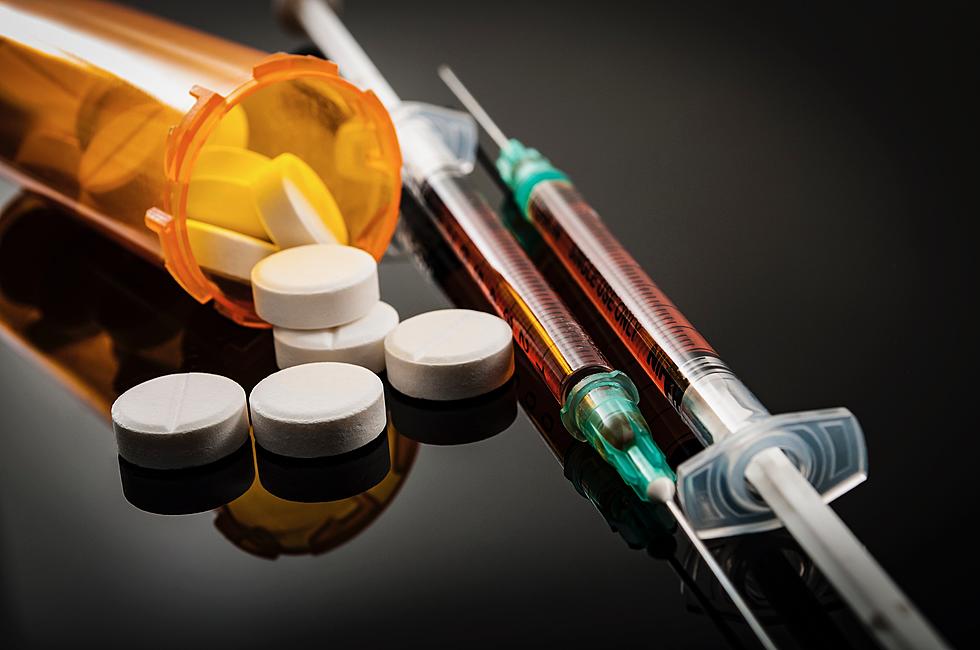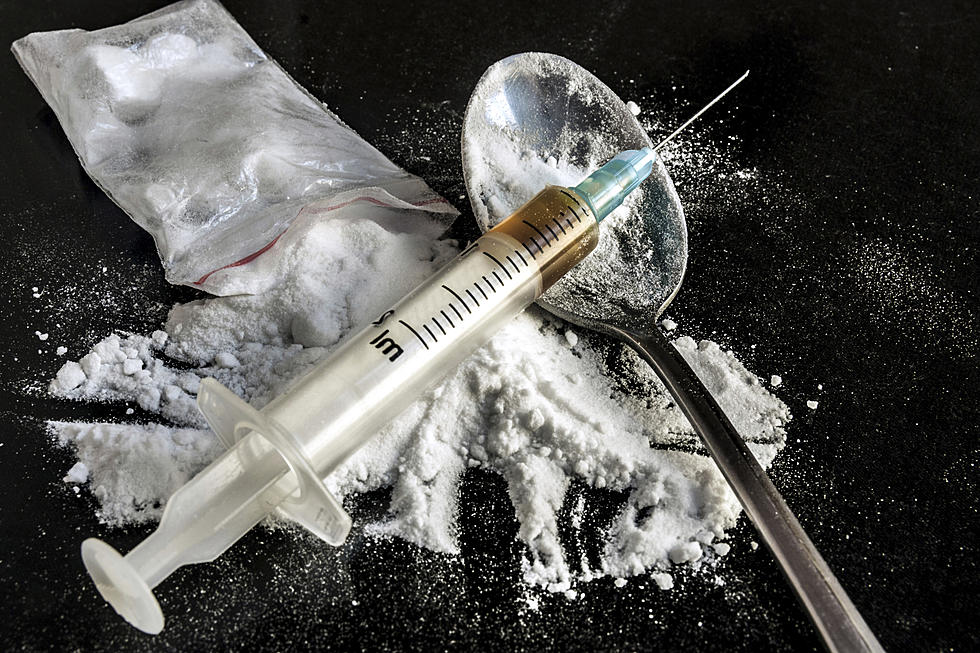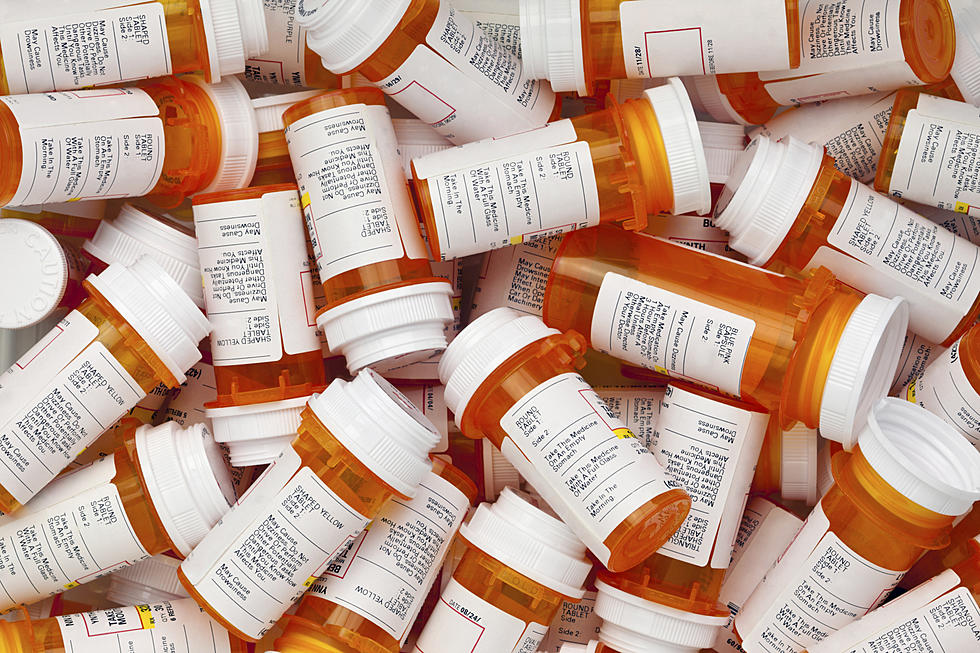
There is such an urgent, dire need for drug prevention and recovery in New Jersey
There is a dark cloud remaining ever-present over the skies of New Jersey derived from a storm of a years-long drug epidemic wreaking havoc on countless lives in our communities, claiming many of them.
This, in spite of countless efforts by many to restore sunshine and cast out the demons who seek to ruin lives by puppeteering people to peddle drugs into our communities, state, and country including Heroin, Cocaine, Fentanyl, Meth, Crack, and more.
Even with the gloomy skies above at times, there is always hope and there are many who want to help.
Among them are the Angels who work with the Partnership for a Drug-Free New Jersey.
"There's no question, that, while we're making progress, people are much more aware especially when we're dealing with the opiate epidemic because there's been a tremendous amount of effort in the state of New Jersey and throughout the country to bring attention to that particular aspect of the epidemic in general, which is the over-prescribing of medicines which has led to so many people going down the path of dependency," Angelo Valente, Executive Director of the Partnership for a Drug-Free New Jersey, tells Townsquare Media on 'Shore Time with Vin and Dave' on 94.3 The Point and 105.7 The Hawk on Sunday morning.
Fentanyl remains one of the biggest problems in this lingering drug epidemic.
"We have seen, over the last year or so, unfortunately, an increase in overdose deaths as a result of fentanyl," Valente said. "What we're finding is that fentanyl is now being mixed in all sorts of illicit drugs that are being marketed throughout the state and the nation. At this point in time, we're cautioning everyone who is dependent on drugs and other types of issues to make sure that they are aware of this particular issue of fentanyl being included in and mixed into so many drugs."

While there are a good amount of people seeking and finding recovery in New Jersey, there's still more work to be done.
"What we're finding, certainly from our partners in the recovery industry, is that there is a great need and a great interest in individuals seeking recovery, so, we're very encouraged by what we're seeing," Valente said. "We certainly would encourage family members who have a relative, child, friend who needs recovery to seek help because we know that recovery is possible, we know that there's a tremendous amount of success stories with regard to people who have overcome their addictions and these are really installations for people and for families that are dealing with this on a day to day basis."
With the opiate part of the epidemic specifically, there's a special focus on prevention when it comes to doctors, dentists, pharmacies, insurance, and injuries.
"That has been a real central part of our efforts in the state of New Jersey and throughout the country, In fact, in New Jersey, back in 2017, we were the first state in the nation to require that, when a person is prescribed an opiate, that there be a conversation between the prescriber -- and that could be a dentist, a doctor, the nurse-practitioner -- and with the patient about the addictive qualities of this drug that they're about to receive, and, also, about any non-opiate alternatives that might be available to deal with a persons pain," Valente said. "All of this happened as a result of what we've learned over the past decade about opiates, that, in many cases, they're not necessary, they were being overprescribed rapidly throughout the state and the nation and, also, one of the things we've learned is that dependency can set in as little as five days, so, when a person goes to a dentist, for example, for a wisdom tooth removal, or a person who has a sports injury -- if they're prescribed an opiate, there's, unfortunately, a good possibility that a certain percentage of those individuals are going to become dependent on that opiate."
The trick part, Valente explains, is that there's no true way of knowing which people are going to become addicted.
"What we're encouraging everyone to do is to look, first and foremost, at alternatives, especially for acute pain," Valente said.
The Partnership for a Drug-Free New Jersey has been working regularly with dentists, doctors, and those in the medical field to try and find those alternatives.
"What we've done at the Partnership over the past decade is we've had a series of continuing medical education programs where we have brought the most recent research, we've brought experts that are really doing wonderful work in the field," Valente said.
You can listen to the full interview conversation with Angelo Valente, the Executive Director of the Partnership for a Drug-Free New Jersey, on 'Shore Time with Vin and Dave', right here.
Part One:
Part Two:
Help Find These 62 Missing New Jersey Children
How Many In America? Guns to Ghost Towns
LOOK: What major laws were passed the year you were born?
READ ON: See the States Where People Live the Longest
More From 94.3 The Point










